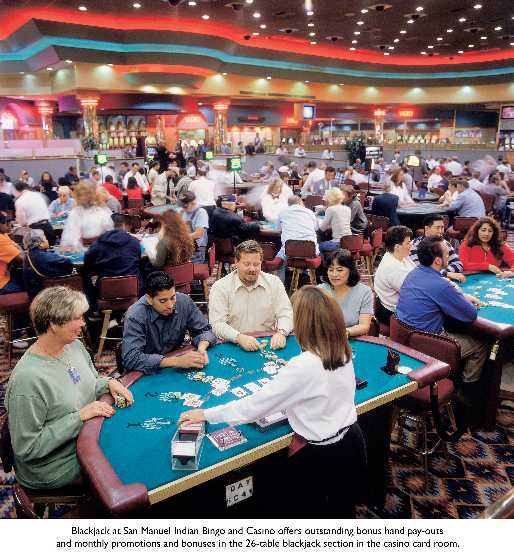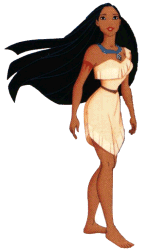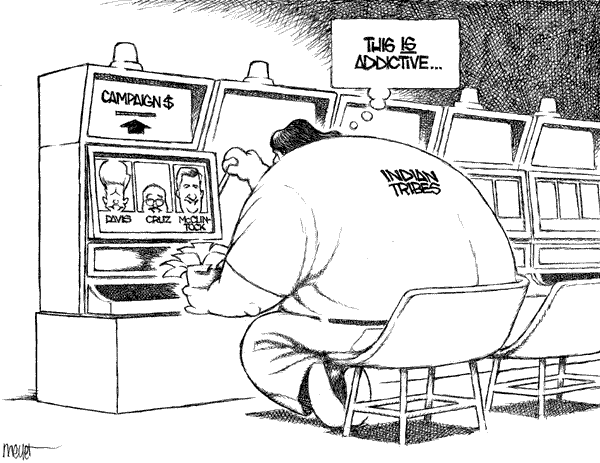
 Another Stereotype of the Month entry:
Another Stereotype of the Month entry:

 Another Stereotype of the Month entry:
Another Stereotype of the Month entry:
From the NY Times:
Cut From the Oscars: Cartoon Characters' Sins
By DAVID M. HALBFINGER
Published: February 27, 2005
LOS ANGELES, Feb. 26 -- ABC executives have forced Robin Williams to drop a comic song from the Oscars show that might well have proved one of the most political and racy numbers of the broadcast, despite the fact that the network and the show's host, Chris Rock, have been promoting the night as anything but tame.
Mr. Williams, the presenter of the Academy Award for best animated feature, decided last week that his one minute on stage would be a prime time to lampoon the conservative critic James C. Dobson, whose group Focus on the Family last month criticized the cartoon character SpongeBob SquarePants for appearing in a video about tolerance that the group called "pro-homosexual."
For a bit of material, Mr. Williams predictably turned to Marc Shaiman, the composer, whose oeuvre includes Oscar-night medleys for Billy Crystal and songs for shows like "Hairspray" and movies like "South Park: Bigger Longer & Uncut".
Overnight, Mr. Shaiman and his partner, Scott Wittman, dashed off a mock exposé of the dark underbelly of cartoonland for Mr. Williams to deliver, over a gospel-music groove, as if he were a full-throated preacher inveighing against other newly-discovered sinners in the nation's midst:
"Pinocchio's had his nose done! Sleeping Beauty is popping pills!/The Three Little Pigs ain't kosher! Betty Boop works Beverly Hills!"
The producer of the Oscars telecast, Gil Cates, urged Mr. Shaiman to make the bit "less political," Mr. Shaiman said, so he quickly removed any reference to Mr. Dobson's protests -- and turned Mr. Williams into a fabulous, lisping character dishing up the latest juicy gossip:
"Fred Flintstone is dyslexic, Jessica Rabbit is really a man, Olive Oyl is really anorexic, and Casper is in the Ku Klux Klan!"
Officials from ABC's broadcast standards and practices office were not pleased. On Thursday, they detailed their objections.
Some lines were opposed for "sexual tone," as the ABC officials, Susan Futterman and Olivia Cohen Cutler, put it to Mr. Williams, Mr. Shaiman and Mr. Cates. These lines included "Chip 'n Dale are both strippers," "Bugs Bunny's a sexaholic," and "Josie and the Pussycats dance on laps."
In the end, however, the sexual references would have been allowed, a network spokesman said. But they held the line on material that they believed might be seen as glorifying drug use or offending Native Americans or disabled people.
Among other lines, they included "The Road Runner's hooked on speed" and "Pocahontas is addicted to craps."
On Friday, faced with rewriting or killing as many as 11 lines out of a 36-line piece, Mr. Shaiman said, he and Mr. Wittman refused, and Mr. Williams had to look for new material.
Mr. Williams, interviewed at the Independent Spirit Awards on Saturday, said he was disappointed.
"For a while you get mad, then you get over it," he said. "They're afraid of saying Olive Oyl is anorexic. It tells you about the state of humor. It's strange to think: how afraid are you?"
He added: "We thought that they got the irony of it. I guess not."
Sharon Waxman contributed reporting for this article.

Rob's reply
Normally, I wouldn't include comments by individuals, or comments that were planned but not said. But I'm making an exception in this case. Williams intended to share his thoughts with a billion or so viewers. He collaborated with two composers and none of them thought they were doing anything wrong. If ABC officials hadn't confronted them, Williams would've gone ahead with his bit.
With his line devoted to Indians—"Pocahontas is addicted to craps"—Robin Williams conjured two stereotypes in five words. Not bad.
First there's Pocahontas, who represents the traditional, unspoiled, noble savage. Then there's craps, which suggests the modern Indians' commitment to gaming.
Pocahontas wasn't even typical of her tribe, much less of all Indians. Using her as a stand-in for all Indians is about as bad as using a stereotypical Indian chief. It may be worse, since people will think of the sexy, Disney-fied version of Pocahontas, not the real young girl.
"Craps" is misleading since only about half of America's tribes are pursuing gaming. Of those, a sizable portion offer only bingo and Class II (bingo) machines, not craps and other Class III games. More to the point, Indians aren't "addicted" to their casinos anymore than non-Indians are addicted to McDonald's or Microsoft. They're pursuing gaming because it's a sound business strategy, not because they lack willpower.
The biggest problem isn't that Williams used stereotypical images, but that he targeted only Indians among ethnic groups. This is the same mentality we see in the sports field. Indians are pretty much "gone," the thinking goes, so it's okay to "honor" them with team names and mascots. Although we wouldn't dream of calling a team "Niggers," "Redskins" is okay.
If you think Williams singled Pocahontas out because she's the only minority cartoon character he could think of...well, think again. Here are some swipes he could've done:
Recall the outcry that occurred when the Aladdin movie included a song describing the Middle East as barbaric and treacherous. Williams wouldn't have dared make a similar comment today because he would've been branded a bigot. And rightly so. Yet he considered it perfectly okay to satirize Indians with an equally unfair stereotype.
Of course, Williams would say he was only satirizing the right-wing evangelicals who believed SpongeBob SquarePants has a homosexual agenda. But if that was his only goal, he could've made claims that didn't criticize women or minorities. For instance:
These are all "true" claims, yet only a conservative zealot would think to protest them. They don't single out any gender or ethnicity. They're neutral compared to Williams's actual lines.
With his Pocahontas line, Williams wanted to have it both ways. He sought to criticize Indians while also criticizing the critics—namely, James Dobson and his Focus on the Family. If Williams had wanted to criticize Dobson only, he could've said something like, "Pocahontas should go back where she came from." That would've impugned Dobson's intelligence and morality without saying anything bad about Indians.

Women = users and abusers
Curiously, Williams's main targets seemed to be women and animals—not men. Going by the lines presented above, he lambasted nine human characters: six women or girls, three men or boys. That assumes you count Pinocchio and Casper as humans—a questionable assumption. He also lambasted four animals or animal teams.
His choices are interesting and perhaps revealing. Why say that Olive Oyl is anorexic but not that Popeye is on steroids? Or that Sleeping Beauty is popping pills but not that Yogi Bear is addicted to picnic baskets? Why imply that Josie and Betty Boop are sex workers but not that Mickey Mouse is living in sin with Minnie Mouse or that PePe LePew is a stalker and sex addict?
Williams was employing a double standard here. He attacked women (and Indians) because they were relatively "safe" targets. I'd hate to think what that says about his attitude toward women. For his sake, it's probably a good thing that the Academy canceled his performance.
Related links
Indian women as sex objects
"Marriage or bust" for Disney's women
The facts about Indian gaming
|
. . . |

|
All material © copyright its original owners, except where noted.
Original text and pictures © copyright 2007 by Robert Schmidt.
Copyrighted material is posted under the Fair Use provision of the Copyright Act,
which allows copying for nonprofit educational uses including criticism and commentary.
Comments sent to the publisher become the property of Blue Corn Comics
and may be used in other postings without permission.